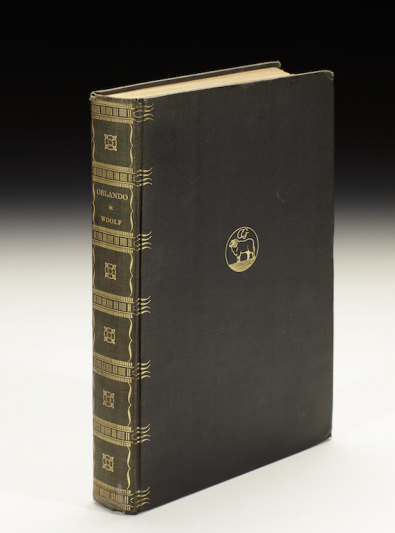The book was written by Virginia Woolf for her lover Vita Sackville-West (1892–1962), who was born and brought up at Knole. It tells the story of the house through the life of Orlando, a character whose life spans the 400–year history of Knole and who mysteriously changes sex half way through. The book was published the year Vita’s father died and Knole passed to her uncle, Major Charles Sackville-West (Edward Sackville-West’s father), thus cutting Vita’s ties with her childhood home. She was prevented from inheriting because of the rules of primogeniture, which meant that the title and estate went to the eldest surviving male in the family. When Woolf wrote Orlando she sought to capture in fiction Vita’s feelings for Knole and her aristocratic heritage. The character Orlando was effectively a mythologised portrait of Vita.
Edward Sackville-West (known to his friends as Eddy) was a well-known cultural figure in the 1930s and 40s and a prolific writer, journalist and broadcaster. In 1926 he was given an apartment at Knole, which included the small rooms in the fifteenth-century Gatehouse Tower, in anticipation of his inheriting the house. His friends, including Aldous Huxley, Duncan Grant, Lytton Strachey and John Banting recorded their names in his Gatehouse Tower visitors’ book. Eddy also kept his substantial collection of books in the Gatehouse Tower. Eddy’s gothic bookplate was inspired by the 1514 engraving by Durer of St Jerome in his study. Eddy’s copy of this print, probably from his rooms at Oxford, is on loan to the National Trust from the Sackville-West family. But the bookplate also reflects Eddy’s life at Knole, showing his writing desk in front of one of the Gatehouse Tower windows. Piano Quintet, his first published novel sits on the windowsill. A number of Edward Sackville-West’s books, carrying his Knole Gothic bookplate, as in this case, or a later plate by John Banting, have been purchased by the National Trust from book dealers for display at Knole. A larger collection of his books were discovered in crates in the Sackville-West family store and these are currently being catalogued. When Eddy died in 1965 he left some of his books to his lifelong friend, the critic Raymond Mortimer, and this copy of Orlando may have come from that now dispersed collection.
